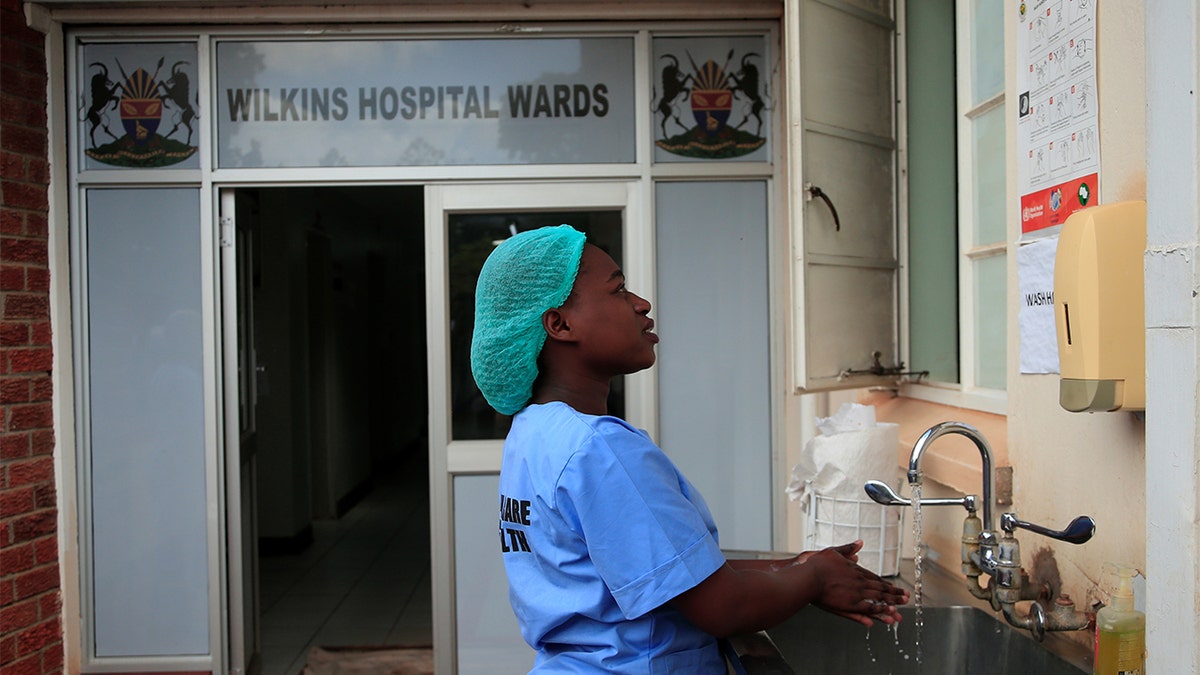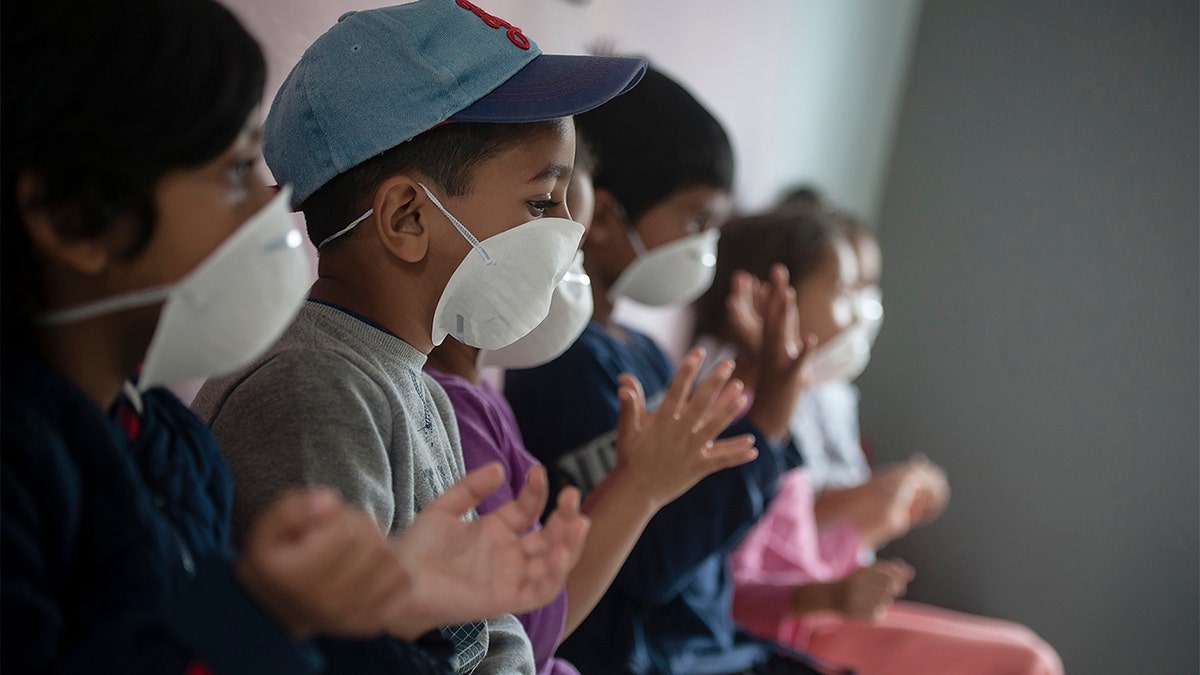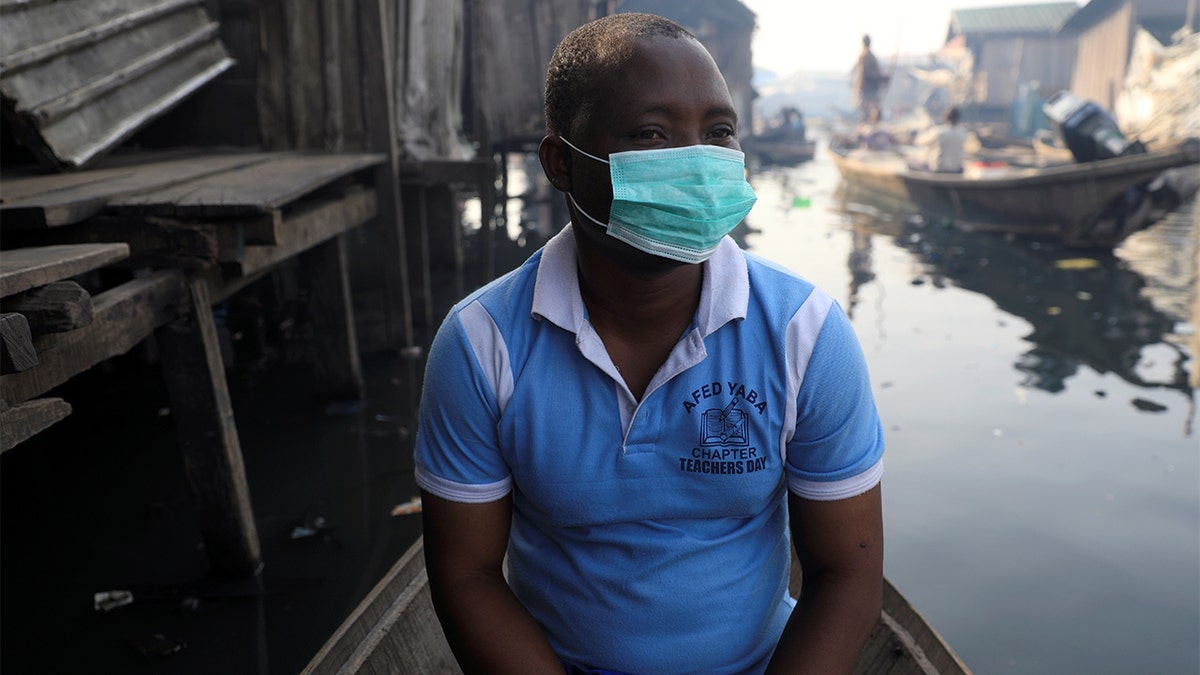Why there is a resurgence of COVID-19 cases
Dr. Peter Hotez and Dr. Marc Siegel explain why there has been an increase in coronavirus cases in the U.S. and abroad
Get all the latest news on coronavirus and more delivered daily to your inbox. Sign up here.
Though the pandemic is in its early days on the continent, the coronavirus’ local spread threatened to turn Africa into an alarming new front for the virus.
“About 10 days ago we had about five countries” with the virus, WHO’s Africa chief Dr. Matshidiso Moeti told reporters. Thursday 35 of Africa’s 54 countries have cases, with the total close to 650. It’s an “extremely rapid evolution,” she said. In fact, the first sub-Saharan Africa case was announced Feb. 28.
She said she did not believe that large numbers of infected people are going undetected in Africa. However, she did acknowledge a challenge in the shortage of testing kits. Forty-three countries have testing capability, up from two when the outbreak began. By Monday, countries will have 60,000 testing kits.
The WHO regional chief also expressed concern about travel restrictions and their impact on the ability to deliver needed resources. The WHO is considering humanitarian corridors, Moeti said.
The continent of 1.3 billion people should “prepare for the worst” with the coronavirus, the World Health Organization’s director-general said Wednesday.
African nations have pointed to the number of cases confirmed in people arriving from abroad as the reason to slam shut some border posts and turn away foreigners. But the growing number of locally transmitted cases brings a new level of danger.
As the number of the coronavirus cases starts rising in Africa, there have been worries that rural areas with weak health systems and crowded low-income communities aren’t ready for the harm and loss about to come.
Health experts from some 20 African nations participated in a video conference with doctors in China on how to contain the virus.
“This is an extremely important step in terms of knowledge share,” said Kenya’s cabinet health secretary, Mutahi Kagwe.
CORONAVIRUS: WHAT YOU NEED TO KNOW
Here is a current breakdown of the pandemic’s effect on the African continent:
FIRST IMPACT

A health worker washes her hands during a demonstration of preparations for any potential coronavirus cases at a hospital in Harare, Zimbabwe, March 11, 2020. (REUTERS/Philimon Bulawayo)
Three African nations announced their first virus cases: Gambia, Zambia and Djibouti.
Also Wednesday, sub-Saharan Africa saw its second death from COVID-19, in Burkina Faso, a country that has one of the continent’s highest number of cases but has not joined many African nations in taking strong measures such as closing borders or banning religious services.
Sudan had previously reported a death.
Thirty-three of Africa’s 54 countries now have cases, with a total of at least 529 midday Wednesday.
The dozen countries with local virus transmission, according to a new update by the Africa Centers for Disease Control, include Algeria, Burkina Faso, Egypt, Morocco and Senegal, some of the nations with the most cases on the continent.
Economically shattered Zimbabwe, with one of the world’s weakest health systems, declared a national disaster on Tuesday even before the country has confirmed a case. It banned gatherings of more than 100 people for the next two months.
GROUND ZERO

Learners wear masks as they sanitise their hans at a pre-school in Lenasia, Johannesburg, Tuesday, March 17, 2020, on the day schools closed in a bid to control the spread of coronavirus. (AP Photo/Shiraaz Mohamed)
South Africa became the continent’s new focus of concern as cases nearly doubled to 116 from two days before.
South Africa’s health minister, Zweli Mkhize, this week called that kind of rate “explosive” in the country with the most cases in sub-Saharan Africa.
Fourteen of the latest cases were from local transmission — and six were in children under 10.
Health experts have warned that even facilities in Africa’s richest nation could be overwhelmed by the virus’ spread.
Crowded conditions in poor areas could lead to even swifter spread of the virus, experts say. Countless South Africans continue to pack into commuter trains and minivan taxis. The annual pilgrimage of the Zion Christian Church, which attracts about 3 million people, was cancelled.
“We have low-income workers who cannot afford to self-isolate or take time off work,” said public health expert Dr. Atiya Mosam, who also worried about the large population without clean water or sanitation or vulnerable from HIV or tuberculosis.
Others across Africa asked how a person can self-quarantine in a crowded slum. The continent has several of the world’s fastest-growing cities.
Despite widespread calls for “social distancing,” a cashier at a popular pharmacy in Johannesburg confided that some customers found it rude when she suggested they swipe their payment cards themselves to limit contact. Elsewhere in the store a shopper determinedly filled a cardboard box with “anti-germ” soap, and hand sanitizer was out of stock despite calls to stop panic buying.
RED ALERT

A man wearing a face mask sits in a traditional canoe at the Makoko community in Lagos, Nigeria March 9, 2020. (REUTERS/Temilade Adelaja)
Africa’s most populous country, Nigeria, announced restrictions on the entry of travelers from countries with more than 1,000 coronavirus cases, including China and the U.S., and suspended visas on arrival for their citizens.
Nigeria has had eight cases of the virus, all in people recently arrived from abroad — one of the latest a 6-week-old baby. The country said one of the new patients, an American, had entered via a land border, a first.
In Kenya, police said a man accused of having the coronavirus was beaten to death. A police report obtained by The Associated Press said the man was returning home from a night out Wednesday when a group of youth approached and “took advantage of his drunkenness.”
Uganda, which has no cases, suspended religious gatherings and attendance at bars while restricting the number of people at weddings to 10 in a country known for mass ceremonies.
In Ethiopia, the U.S. Embassy noted a rise in anti-foreigner sentiment after cases emerged in the country. “Reports indicate that foreigners have been attacked with stones, denied transportation services, being spat on, chased on foot, and been accused of being infected with COVID-19,” a security alert said.
CLICK FOR COMPLETE COVERAGE OF THE CORONAVIRUS OUTBREAK
Somalia, which announced its first case this week, closed schools and universities for two weeks and warned against public gatherings as the country with one of Africa’s weakest health systems tries to stop the virus’ spread.
“This is really a very scary moment,” said Hassan Kafi, a medical student in the capital, Mogadishu. The country has suffered from nearly three decades of conflict.
The Associated Press contributed to this report.





















